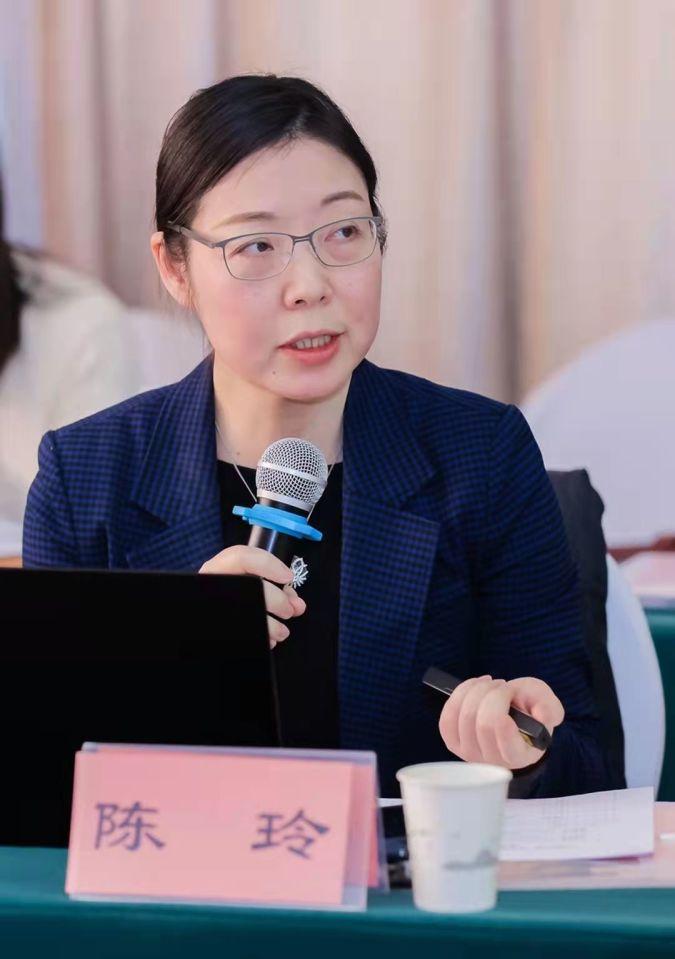Zhongxin Jingwei, December 21 (Zhang Yanzheng) Recently, the Department of Sociology of the School of Social Sciences of Tsinghua University and the Faculty of Chinese Academy of Sciences- Tsinghua University Center for Collaborative Development of Science and Society hosted a seminar on "Ethical Positions, Algorithm Design and Corporate Social Responsibility". Chen Ling, associate professor of the School of Public Policy and Management of Tsinghua University, pointed out at the seminar that an overall framework of "acceptable fairness" can be established from the three levels of data, algorithms and human behavior, focusing on the fairness of the starting point, process and result of algorithmic governance, and promoting the innovative development and good governance of AI.

Chen Ling, Associate Professor, School of Public Policy and Management, Tsinghua University. Source: Courtesy of the organizer
"Regardless of the country, economy or industrial sector, all parties regard fairness as a starting point for algorithmic governance, but in fact, there is no commonly acceptable content on what is algorithmic fairness." Chen Ling believes that there are different definitions of fairness, at least a basic framework should be established to understand "acceptable fairness" from the perspective of consensus.
Fairness can be divided into starting point fairness, process fairness, and result fairness, and Chen Ling suggested formulating corresponding fairness standards for fairness at different stages. "For example, we take the data as a fair object of starting point, first of all we want the dataset used to train the algorithmic model to be complete in itself, and the dataset is not biased towards male or female, white or black, etc. Second, the dataset should be open and the user can choose to enter or exit the dataset. If the dataset is complete and open, at least fair to the minimum, the starting point of the algorithm can be guaranteed. Chen Ling said.
In Chen Ling's view, the transparency, traceability and accountability of the algorithm program are conducive to promoting the fairness of the process of the algorithm. For example, through the algorithm ethics committee or external regulatory agency set up in the enterprise, it is possible to verify and trace the problems of any module or link of the algorithm, and then determine the accountability object of each module or link, which can ensure the fairness of the algorithm process at the minimum.
"Result fairness is the most intuitive and simple fair demand of people." People see algorithmic recommendations or AI decisions that hopefully are computable, predictable, and explainable. "For example, Chen Ling said that many times people can accept some discriminatory pricing or special recommendations, such as differential pricing of insurance, essentially because it meets people's expectations, rather than equal results." Therefore, the computable, predictable, and interpretable results recommended by the algorithm, rather than the equalization of decision results, is the lowest starting point for the fairness of the results. ”
So how do you build an overall framework of acceptable fairness? In Chen Ling's view, we can start from three levels: data, algorithms, and human behavior. "The completeness, accuracy and openness of the data, the transparency, traceability and accountability of the algorithm, and the computability, predictability and interpretation of the results are the acceptable bottom line of fairness; those parts that are still controversial or technically to be resolved can be used as the adjustment interval of the algorithm's fairness, and as the level of adjustment increases, the consensus bottom line of the algorithm's fairness can also be gradually improved."
So, how should the rule system of algorithm fairness be implemented? Chen Ling said that the law provides a minimum fair bottom line, and the requirements of algorithmic ethics are often higher than the law. We can study the regulatory status of the existing legal system from the three levels of private law, public law and global order, and find a starting point for acceptable and fair consensus.
"Global legislation or governance regulations have two enlightenments for us: first, under the existing legal and administrative regulation system in China, it is recommended to introduce different levels of strategies, including algorithmic fairness policies, false information guidelines, credible transparency guidelines, etc.; second, to take into account the development of innovation and the digital economy, respect objective realistic conditions, and attract more engineers and experts in different fields to participate in the rule-making process." Chen Ling said. (Zhongxin Jingwei APP)
Zhongxin Jingwei copyright, without written authorization, any unit and individual shall not reprint, excerpt or otherwise use.